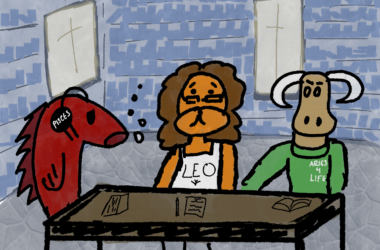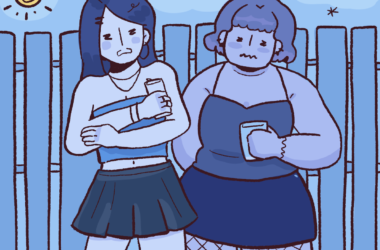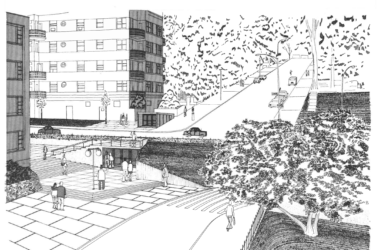Loneliness has touched everyone at one point in their lives. Now, loneliness has paradoxically become a shared experience, with both its mental and physical impacts warranting increased attention. The intergenerational Wisdom Exchange Project, initiated by a team of graduate students from McGill University, Ryerson University, and the University of Waterloo, seeks to foster friendships between two demographics especially vulnerable to social isolation: Older adults and graduate students in Quebec and Ontario.
Sivaniya Subramaniapillai, a PhD candidate in the Department of Psychology at McGill, is one of four team members of the Exchange Project. In an interview with The McGill Tribune, Subramaniapillai discussed the value of fostering intergenerational bonds.
“The goal is to merge two people who would otherwise not be able to develop a friendship,” Subramaniapillai said. “I think there’s a huge benefit of having an exchange of ideas and wisdoms between people of different backgrounds. This is what really inspired the project, the focus on exchange between ideas.”
The project’s founders believe the generational differences that seemingly separate individuals can become sources of mutual wisdom. Subramaniapillai discussed the unique possibilities of building intergenerational connections.
“I’m seeing it as a friendship spark that happens because we’re learning from someone else who has had a lifetime of experiences that’s different from our lifetime of experiences,” Subramaniapillai said.
Creating these friendships becomes vital in the face of enduring loneliness, a state that impacts psychological and physical well-being. Recent research connects prolonged periods of isolation to serious health ramifications, including heart disease and dementia. For older adults already at risk of illness, transitioning to retirement, and losing close networks of friendships, loneliness is a particularly crucial concern.
Although they receive less research attention, feelings of isolation among graduate students are prevalent as well. Due to the secluded nature of research work, experiences of imposter syndrome, and constant deadline pressures, graduate school can damage the mental wellness of students.
Subramaniapillai discussed her own experience working as a graduate student while in social isolation.
“A lot of the time that’s spent doing research is really [lonely] work,” Subramaniapillai said. “Especially with COVID-19, those natural conversations with lab mates [and] with my supervisor are no longer there. I think I really relied on these spontaneous conversations that happened in the lab.”
Despite the dire effects of long-term loneliness, Subramaniapillai is optimistic for the future. Increasing levels of social contact are proven to lead to positive health outcomes, showing the crucial role that meaningful relationships have for generations both old and young.
The Wisdom Exchange Project also seeks to spark educational discussions of physical and psychological health. As a part of the initiative, knowledge translation seminars will be hosted where graduate and postdoctoral trainees share their research on topics of healthy living. With these conversations, the team hopes to combat a challenge often faced by researchers: Publicly disseminating the results of empirical studies.
Subramaniapillai explained her desire to cultivate opportunities for dialogues that can improve the reception and impact of influential findings.
“The goal of these seminars is to provide a platform for scientists to communicate their research in a really easy, understandable manner,” Subramaniapillai said. “But they aren’t meant to be a unidirectional format. We really hope that the older population ends up participating in these seminars, actively engaging with these scientists.”
Before the pandemic, the Wisdom Exchange Project was already in progress. The exacerbated toll of social isolation in recent months, however, inspired the project’s team to kick-start the initiative.
In the coming weeks, the Wisdom Exchange Project will release a questionnaire to begin the pairing process.
Interested students can complete the questionnaire or email [email protected] for more information.









